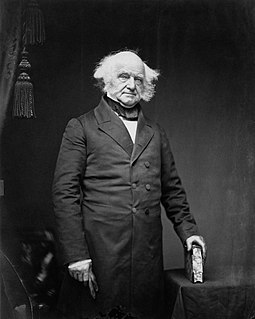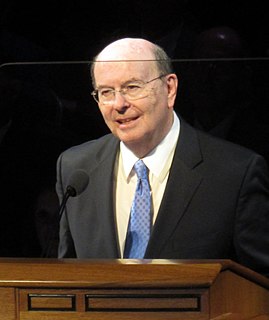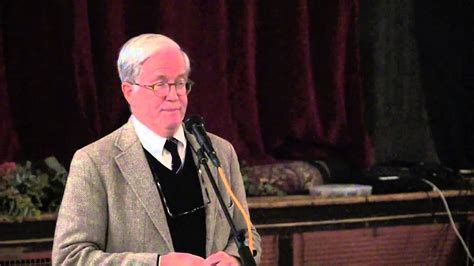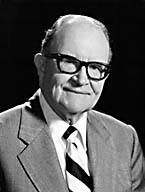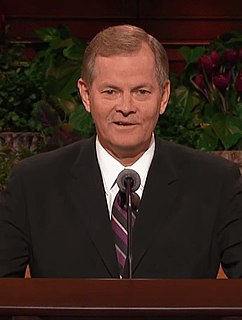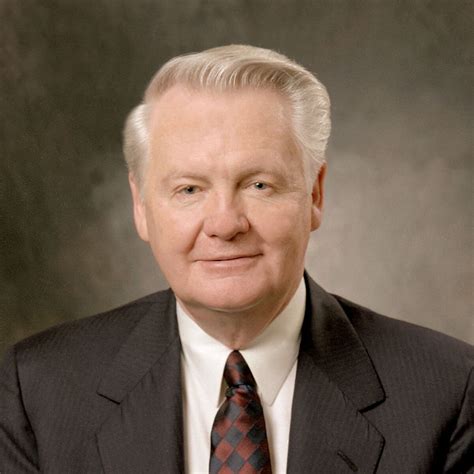Top 262 Atonement Quotes & Sayings
Explore popular Atonement quotes.
Last updated on April 14, 2025.
Believe in Jesus Christ, our Savior and our Redeemer, the Son of God, who came to earth and walked the dusty roads of Palestine - the Son of God - to teach us the way of truth and light and salvation, and who, in one great and glorious act offered an atonement for each of us. He opened the way of salvation and exaltation for each of us, under which we may go forward in the Church and kingdom of God. Be not faithless, but believe in the great and wonderful and marvelous blessings of the Atonement.
The Atonement is an event that enables us to be reconciled to God. The word atonement, or 'at-one-ment,' means to restore or to come back. In terms of family, it means to be reunited with one another and with God and His Son, Jesus Christ. It means sadness through separation will become happiness through reuniting.
Trust wholly in Christ; rely altogether on His sufferings; beware of seeking to be justified in any other way than by His righteousness. Faith in our Lord Jesus Christ is sufficient for salvation. There must be atonement made for sin according to the righteousness of God. The person to make this atonement must be God and man.
McEwan's Atonement…truly dazzles, proving to be as much about the art and morality of writing as it is about the past…. The middle section of Atonement, the two vividly realized set pieces of Robbie's trek to the Channel and Briony's experiences with the wounded evacuees of Dunkirk, would alone have made an outstanding novel…. There is wonderful writing throughout as McEwan weaves his many themes — the accidents of contingency, the sins of absent fathers, class oppression — into his narrative, and in a magical love scene.
Until Gettysburg," she continued, "I was working for the wrong reasons. At first it was to prove myself worthy in someone's eyes. Later it was out of guilt, trying to find atonement in God's eyes. But atonement is free, never earned. And I've learned that the only person I need to please with my life is God.
Jesus Christ was the only one capable of performing the magnificent Atonement because He was the only perfect man and the Only Begotten Son of God the Father. He received His commission for this essential work from His Father before the world was established. His perfect mortal life devoid of sin, the shedding of His blood, His suffering in the garden and upon the cross, His voluntary death, and the Resurrection of His body from the tomb made possible a full Atonement for people of every generation and time.
The plan of salvation could not be brought about without an atonement... The atoning sacrifice had to be carried out by the sinless Son of God, for fallen man could not atone for his own sins. The Atonement had to be infinite and eternal to cover all men throughout all eternity. Through His suffering and death, the Savior atoned for the sins of all men. His Atonement began in Gethsemane and continued on the cross and culminated with the Resurrection.
We really are immortal in the sense that Christ’s Atonement conquers death, both physical and spiritual. And provided we have so lived Today that we have claim on the Atonement’s cleansing grace, we will live forever with God. This life is not so much a time for getting and accumulating as it is a time for giving and becoming. Mortality is the battlefield upon which justice and mercy meet. But they need not meet as adversaries, for they are reconciled in the Atonement of Jesus Christ for all who wisely use Today.
Through the infinite Atonement, God has provided a means whereby we can both overcome our sins and become completely clean again. This is made possible by the eternal law of mercy. Mercy satisfies the claims of justice through our repentance and the power of the Atonement. Without the power of the Atonement and our complete repentance, we are subject to the law of justice.
Thus, the enabling and strengthening aspect of the Atonement helps us to see and to do and to become good in ways that we could never recognize or accomplish with our limited moral capacity. I testify and witness that the enabling power of the Savior's Atonement is real. Without that strengthening power of the Atonement, I could not stand before you this morning.
It is often reported that the Five Points of Calvinism are the conceptual hard-core of Reformed thought. That is very misleading. The Five Points supposedly originate with the Synod of Dort in the early seventeenth century. Yet we find important Reformed leaders who were signatories to that documentation who don't think that limited atonement is the right way to think about the scope of Christ's saving work. How can this be? The answer that recent historical theology has thrown up is that the canons of the Synod don't require adherence to the doctrine of limited atonement.
If you did something in 1975 that you deeply regret and that you now can recognize as having been profoundly irresponsible, for example, the only way to be lifted out of deep regret and the pain over it is through atonement - through the kind of remorse that leads to genuine atonement, the making of amends, and forgiveness of self and others.
Sometimes we can lose the wood for the trees. Some specific issues dealt with in the book [Saving Calvinism]: the scope of election (who is saved?); the nature of the atonement (do we have to hold to penal substitution if we're Reformed?); the scope of the atonement (for whom did Christ die?); whether we have to hold to some sort of theological determinism (God ordains all that comes to pass).
What you present as the gospel will determine what you present as discipleship. If you present as the gospel what is essentially a theory of the atonement, and you say, If you accept this theory of the atonement, your sins are forgiven, and when you die you will be received into heaven, there is no basis for discipleship.
The atonement, or forgiveness of sin once and for all achieved on the cross, weighs in, and heavily. But the atonement is confirmed, ratified, sealed, and made enduringly good by virtue of Christ's rising from death. Our justification hinges on a risen life, present in us now because Christ is present with us now.
What you present as the gospel will determine what you present as discipleship. If you present as the gospel what is essentially a theory of the atonement, and you say, 'If you accept this theory of the atonement, your sins are forgiven, and when you die you will be received into heaven,' there is no basis for discipleship.
Sometimes we say we want an end to hate or racism or sexism. But we all participate in keeping these structures alive. If everyone decided to relinquish the past what would happen to people who feel that there hasn't been proper atonement made to them? And what happens to the person who feels that the constant atonement is their identity?
How can a novelist achieve atonement when, with her absolute power of deciding outcomes, she is also God? There is no one, no entity or higher form that she can appeal to, or be reconciled with, or that can forgive her. There is nothing outside her. In her imagination she has set the limits and the terms. No atonement for God, or novelists, even if they are atheists. It was always an impossible task, and that was precisely the point. The attempt was all.
I am so profoundly grateful for the gospel of Jesus Christ, for a testimony of the Atonement of the Savior. I believe in it with all my heart, and I live for it, and I bear witness of it this day. Of all of the events of human history, none other approaches the Atonement of the Savior in its meaning and in its results. God be thanked for the gift of His precious Son, to whom we all owe thanks for His sacrifice in our behalf.
The Atonement of Jesus Christ and the healing it offers do much more than provide the opportunity for repentance from sins. The Atonement also gives us the strength to endure "pains and afflictions and temptations of every kind," because our Savior also took upon Him "the pains and the sicknesses of his people" (Alma 7:11). Brothers and sisters, if your faith and prayers and the power of the priesthood do not heal you from an affliction, the power of the Atonement will surely give you the strength to bear the burden.









